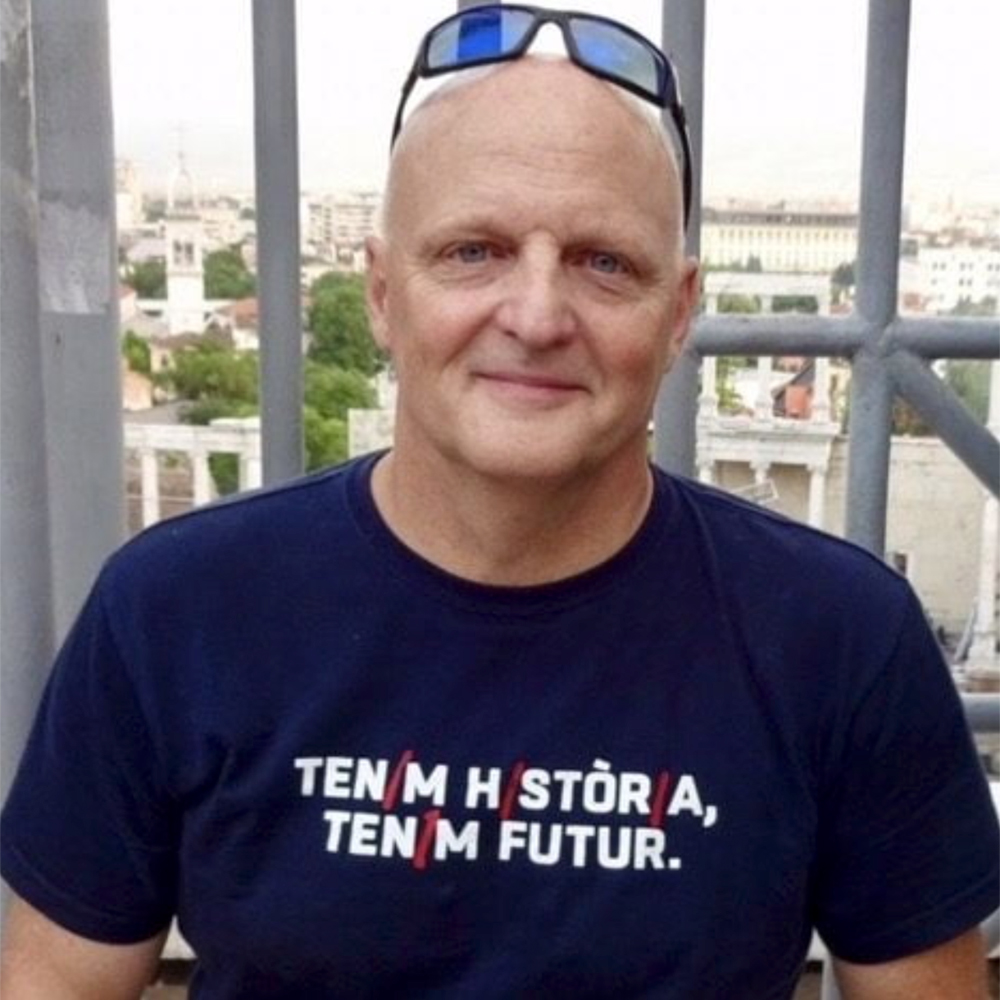Developing psychic detachment can be an important skill, one that is not always easy to attain. We are, in many ways, primitive creatures, driven by immediate concerns. Psychic detachment is the art of using both the will and the abstracting powers of the brain to put a brake on those often quite natural and pressing drives and concerns.
The advantages of doing so are widely recognized. We know, for example, that to stop and reflect in this way can save us from numerous destructive practices, from overeating and drinking to permanently alienating those we need and/or love.
We also know it is of great utility in what are sometimes referred to as the knowledge industries, a set of pursuits that, in one way or another, task us with generating essentializing representations of one aspect or another of the world’s unfathomable complexity.
What we tend not to talk about and recognize as clearly are the sometimes deleterious effects of this same attribute. It would appear that among the primary drives that the abstracting mind can also blunt is the human tendency to empathy. When we see and hear pain we generally react to it subrationally, moving, for example, on reflex to pick up the child who has fallen and is crying on the sidewalk before us. In other words, like so many other human properties psychic detachment is a mixed bag.
And yet it is not always treated as such in many sectors of our population, especially the more credentialed ones. There, it often seems that the ability to think in highly abstract terms and to, in effect, banish the plight of individual human beings and their real life dramas from one’s decision-making calculus is not only tolerated, but effectively lionized.
This trend has gone so far that we now see public figures speaking about policies that they have created and effectively imposed on other relatively powerless people acting, at times, as if they had nothing to do with creating them, and as if the human tragedies generated by them merit approximately the same attentions and concern one would give to, say, mistakenly picking up spicy rather than sweet Italian sausages on a trip to the local meat market.
I was reminded of this growing tendency toward moral flippancy in our elites as I watched interviews with two of the more influential architects of current US vaccine policy, Dr. Paul Offit and CDC chief Rochelle Walensky.
At one point in his extensive interview with a fellow physician named Zubin Damania, whose podcast handle is ZDoggMD, and with whom he appears to be quite chummy, Offit is asked about the important matter of natural immunity and its relation to the current Covid vaccinations.
To his credit, he goes against the shameful lies and obfuscations of the CDC and the FDA, and affirms natural immunity’s long-established and uncontroversial standing in the field of immunology.
In response to Zdogg’s assertion that data is showing that natural immunity is “pretty good” he says that this is:
“As you would expect. It’s true for every other virus with the arguable exception of the flu. If you’ve gotten measles, there is no reason to get a measles vaccine, or mumps or rubella or chickenpox [vaccine]. I mean, you’ve been vaccinated essentially….It is not at all surprising that if you’ve been naturally infected that you will develop high frequencies of memory B and T cells which should protect you against serious illness. And I think that is what the CDC now has shown.”
He then goes on to tell, between self-satisfied smiles of his own and giggles from Zdogg, how he was one of five people (the other four being Fauci, Vivek Murthy, Rochelle Walensky and Francis Collins) asked to advise the Biden administration on whether “natural infection should count in situations where the vaccine is mandated.”. He says that he was one of two voices in the group that said it should, but that he lost.
But no sooner does he say this than, again amidst big smiles on both sides of the podcast, he tells how funny and silly it was that “sweet” Vivek Murthy—you know, the one who just asked High Tech to collaborate in ratting on US citizens who dare to disagree with government vaccine policy—had asked everyone at this meeting of uber-important and publicly-known scientists to identify themselves by name before beginning the deliberations.
Ha-ha. Isn’t that funny?
How was the decision made to ignore immunity from prior infection?
— Alexandros Marinos (@alexandrosM) February 10, 2022
In this clip, Paul Offit describes how he and another person advised in favor of accepting natural immunity, while two others voted against it.
A🧵 on why that was possibly the worst decision of the pandemic: pic.twitter.com/OAM3TvNuhY
I guess it is when you are so pleased with yourself for being up there in the societal cockpit, and so well-practiced at psychic distancing that you can’t even begin to think about the importance of your oh-so-jolly meeting of notables and its decisions to the lives of millions of people.
Hey Paul, did you ever think of taking a principled stand and going public with what you knew to be true about natural immunity? Did you ever think of challenging and exposing the blatant lies that both the CDC and FDA were then making up about it? Did you ever think of the millions of perfectly healthy people who, quite rationally, might object to taking an experimental medication that, according to your own words, they manifestly don’t need?
Did you ever think of the cruelty bordering on sadism of forcing millions of people who, thanks to natural immunity posed no infectious threat to anyone, were having to choose between taking a medication that can do them little good and might do them considerable harm, and losing their livelihood?
No, for pleased-as-punch-with-himself Paul, it was nothing more and nothing less than a fun little chat between special folks like himself. And if Paul knows anything, it’s that you don’t get anywhere in life being principled and headstrong among the powerful. No, only “loser” hotheads, unable to see where power lies and laugh on cue at “sweet” Vivek’s quirky brand of social etiquette do things like that.
A few days back Rochelle Walensky was invited to give an interview at her alma mater, Washington University in St. Louis. The first part of the discussion pivoted around softball questions which allowed her to pontificate on her decidedly race-infused views of public health. It was more than halfway into the interview before her interlocutor finally got around to asking her about where she and the CDC might have gone wrong in their management of the Covid epidemic.
Here is what followed.
First, she told of how pleased she was when she heard (from a “CNN feed” no less) about the “95% effectiveness” of the vaccines because, like all of us, she just wanted to get the pandemic behind us. And then she expresses, between chuckles, her shock upon learning that the vaccines might diminish in effectiveness over time “Nobody said waning…Nobody said what if the next variant…what if it’s not as potent against the next variant?”
Walensky says she wanted to be helpful when she saw on CNN that the vaccine was 95% effective. Nobody said waning or asked about the next variant. Science is gray. pic.twitter.com/JnudpVgGfX
— Phil Kerpen (@kerpen) March 6, 2022
You see, even though a humanities professor like me with no scientific training knew —thanks to my readings of the Moderna, Pfizer and Janssen EUAs and from reading numerous scientific papers on vaccine effectiveness and safety and listening to people like Sucharit Bkahdi, Geert Vande Bossche and Michael Yeadon— by very early 2021 that the vaccines probably would not prevent transmission and might actually promote new resistant varieties of the virus, none of this was conceivable or knowable to the Director of the CDC.
Like the human hologram she apparently is, we are led to believe that she was there, but she was not really there. She was responsible, but really someone else was. “No one could have known,” she exclaims, except, of course, the hundreds of thousands of us amateurs who did, in fact, know, and were censored and called science-hating anti-vaxxers for our troubles.
And of course, holograms don’t do guilt or responsibility. Did she express any sympathy for the people that were forced out of jobs over their refusal to take what we now know, and she admits, were largely ineffective vaccines?
Nope, again even though she was in the chair, it was, of course, all beyond her control. And as a powerless spectator—cue the folksy music—just like you and me, she was disappointed and surprised. Mistakes were made. She meant well. Her only real faults, as she said in the same talk, were the clearly well-intentioned ones of having “too little caution and too much optimism.”
And while she was exonerating herself, she made time to give the masses a little bitty sermon on the nature of science itself.
Remember science?
That thing that was settled and brooked no dissent and was best represented by the guidelines published by the CDC, guidelines that the same organization encouraged employers and organizations of all types to use as a cudgel against those daring to think that bodily sovereignty was still fundamental freedom. That thing that “sweet” Vivek Murthy presently wants to conduct inquisitions about with the help of Big Tech.
Well here’s what our hide and seek hologram said on that subject:
“And maybe the other thing I’ll say is the gray area. I have frequently said, you know, that we’re going to lead with the science. Science is going to be the foundation of everything we do. That is entirely true. I think the public heard that as science is foolproof, science is black and white. Science is immediate and we get the answers, and then we make the decision based on the answer. And the truth is science is gray, and science is not always immediate. Sometimes it takes months and years to actually find out the answer. But you have to make decisions in a pandemic before you have that answer.”
Get it?
All those moves to censor and professionally destroy those who had opinions different from the CDC, actions rooted precisely in the presumption that science is, in fact, black and white, and that those who get it wrong need to be professionally punished, well, that’s all a figment of your primitive imagination.
Or as Harold Pinter put it in his Nobel Prize speech when referring to the US penchant for wantonly destroying other cultures, “It never happened. Nothing ever happened. Even while it was happening it wasn’t happening. It didn’t matter. It was of no interest.”
So yes, excessive psychic detachment turns fellow human beings into self-referential objects or our own minds can be rather problematic. Indeed, I think, though I can’t be sure, that psychologists even have a term for it: psychopathy.
Join the conversation:


Published under a Creative Commons Attribution 4.0 International License
For reprints, please set the canonical link back to the original Brownstone Institute Article and Author.









